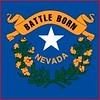The case, Bloomberg LP v. Board of Governors of the Federal Reserve System, 08-CV-9595, U.S. District Court, Southern District of New York (Manhattan) was filed on November 7, 2008 by Bloomberg News under the Freedom Of Information Act. As President Obama was making his announcement,
Manhattan Chief U.S. District Judge Loretta Preska ruled against the central bank...rejecting the argument that loan records aren’t covered by the law because their disclosure would harm borrowers’ competitive positions...The judge said the central bank “improperly withheld agency records” by “conducting an inadequate search”...She gave the Fed five days to turn over documents it told the reporters it located, including 231 pages of reports (11 separate programs), and said it must look for more at the Federal Reserve Bank of New York, which runs most of the loan programs..
It is not yet decided whether the government will appeal the ruling which only covers the original $787 Billion TARP Fund. We may soon get a peek at part of the $2 Trillion portfolio of toxic assets, along with some interesting loan histories.
The other development comes from Forbes magazine (Sept. 7 issue). They published their 100 most powerful women in the world. Angela Merkel, Chancellor of Germany, came in first, but a surprise second was Sheila Bair, Chairman of the Federal Deposit Insurance Corporation (FDIC). She had been raising concerns about the sub-prime market since 2001, when she was at the Treasury Dept. As Chairman of the FDIC, she is clearly on the side of Main Street. Currently she is enmeshed in a dispute with both the Federal Reserve and the Treasury Dept. over a plan to move regulatory jurisdiction of the biggest banks to the Fed. A good background of her history and philosophy can be found in a Frontline interview from December of 2008.
A lot of this, it's not rocket science. Making loans people can repay, documenting their income, what's hard about that? Having compensation structures that reward long-term performance, that's not hard either; having leverage constraints that apply across the board. And again, it will be difficult to craft those, but I think the basic principle is not a difficult one to grasp.
Amen Sister, and let's not forget the bill to audit the Federal Reserve that passed the House on a bipartisan vote that is still in the Senate. It appears that the forces of Main Street are gathering for a counter-attack, and just in time for an election year. This could be good.




